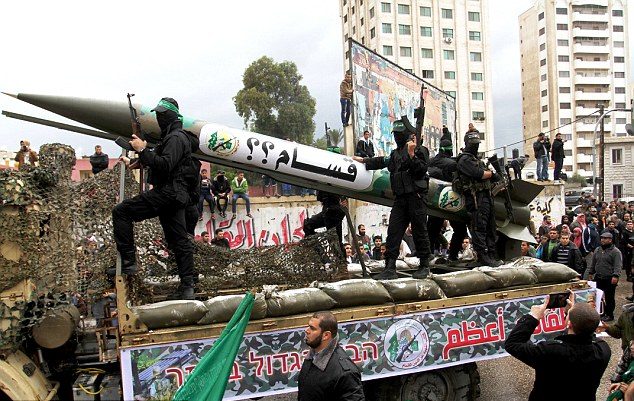The current war on Gaza is unlike any other in terms of the consequences of its timing and setting, both inside Israel and on a regional and global scale. This analysis considers the factors and circumstances that point to the timing’s significance.
The following describes the conflict’s context in relation to Israel, Hamas, the region, and the international stage:
I. Israel
1. The war coincided with significant Jewish holidays, such as Simchat Torah, prompting a large number of Israeli military commanders to request leave and cease operations.
2. Israeli public demonstrations against the judicial reforms were persistent, with officers and reserve soldiers participating timidly by signing petitions and notices of criticism and threatening to skip training. This raised the prospect of a serious division within the Israeli army.
3. The expansion of the political chasm between the far right and the remainder of the political spectrum in Israel, including at the societal and authoritative levels, as evidenced by the rising number of Israelis who emigrated abroad, at the level of the government and Jewish communities around the world, at the level of the Likud Party and the other religious parties in the government coalition as a result of the ultra-Orthodox Conscription Bill, at the levels of the government and the army (civil-military relations), and at level of Israel and abroad, particularly within the United States, which is fed up with far-right policies that endanger democratic values.
4. The escalating strain on the Israeli economy, which manifested in various ways, such as fluctuations in foreign investment inflows, the exchange rate, and a political-driven imbalance that impacts how budget items are allocated and how much funding is available for government spending as well as the modernization of the Israeli military.
II. Hamas
1. According to Palestinian opinion polls, Hamas’ popularity among Gazans is declining, which has an impact on Hamas’ ability to rule the Gaza Strip, its significance as a resistance movement (particularly now that two full years have passed since the organization’s last direct conflict with Israel), and its likelihood of winning in the event that Palestinian general or presidential elections are held.
2. Since March 2021, Israel has been attempting to destroy Hamas’ infrastructure in the West Bank, specifically in the northern part of the West Bank in Jenin and Nablus and Hamas sensed the danger of the Israeli endeavor being realized. Hamas may therefore have intended to distract Israeli attention away from the northern West Bank with this conflict, which was initiated from Gaza. Yet Israel may be cognizant of this, so it persists with its policy in the West Bank, which entails raiding the camps and killing Hamas members in the West Bank.
3. During the last two years, Iran has been seen to have focused its financial, technical, and political assistance on Islamic Jihad, its closest proxy. As a result, Hamas realized how important it was to mend its relationship with Iran while working with its regional operatives, namely Hezbollah in Lebanon.
III. The Region
1. There were growing chances for Israel to integrate into the region at the expense of resolving the Palestinian-Israeli conflict, which was recently demonstrated by the Israeli Prime Minister’s promotion of the Indo-European Corridor project at the UN General Assembly (September 2023).
2. The likelihood of Saudi Arabia and Israel finalizing the Abrahamic Normalization Agreement through US mediation was growing. It was predicted that the normalization agreement would be signed in November, at the earliest, or in June of 2024, at the latest.
3. The resumption of fighting on the Yemeni front against the Arab coalition and the recurrence of political and security crises between Hezbollah and Israel in what was known as the “tent crisis” were two examples of indicators pointing to the occurrence of a regional crisis on multiple fronts. The situation is analogous on the Syrian front, where Israeli forces engage in combat and the Syrian government retaliates with missile assaults. Hamas might have placed a wager on the current state of regional crisis.
IV. The Global Arena
1. A number of factors have contributed to the escalation of political tension between the Democratic administration of the United States, led by Biden, and the Israeli government, led by Netanyahu. These include the Israeli stance on the Russian-Ukrainian war and the Israeli government’s propensity to adopt an extreme right-wing identity that is incompatible with democratic values in the United States.
2. The United States’ preoccupation with the Russian-Ukrainian front led to internal political squabbles concerning the level of assistance that should be extended to the Ukrainian people and army, as well as spending priorities.
3. It is not implausible that Europe wants to break the Russian monopoly on natural gas exports by looking for a number of regional hubs in the Middle East. This aligns with Iran’s goal of advancing natural gas pipelines through Turkey to Europe. In this context, it is important to note that the Eastern Mediterranean countries suffered greatly from the problem of gas supply to Europe because of safety regulations that forced production and exports to stop because of the war’s aftermath and the potential for it to worsen.
In conclusion, there were circumstances that amounted to wagers on Hamas’ decision to initiate a military operation at that time, calling into question the veracity of Hamas’ political and military calculations against Israel.













